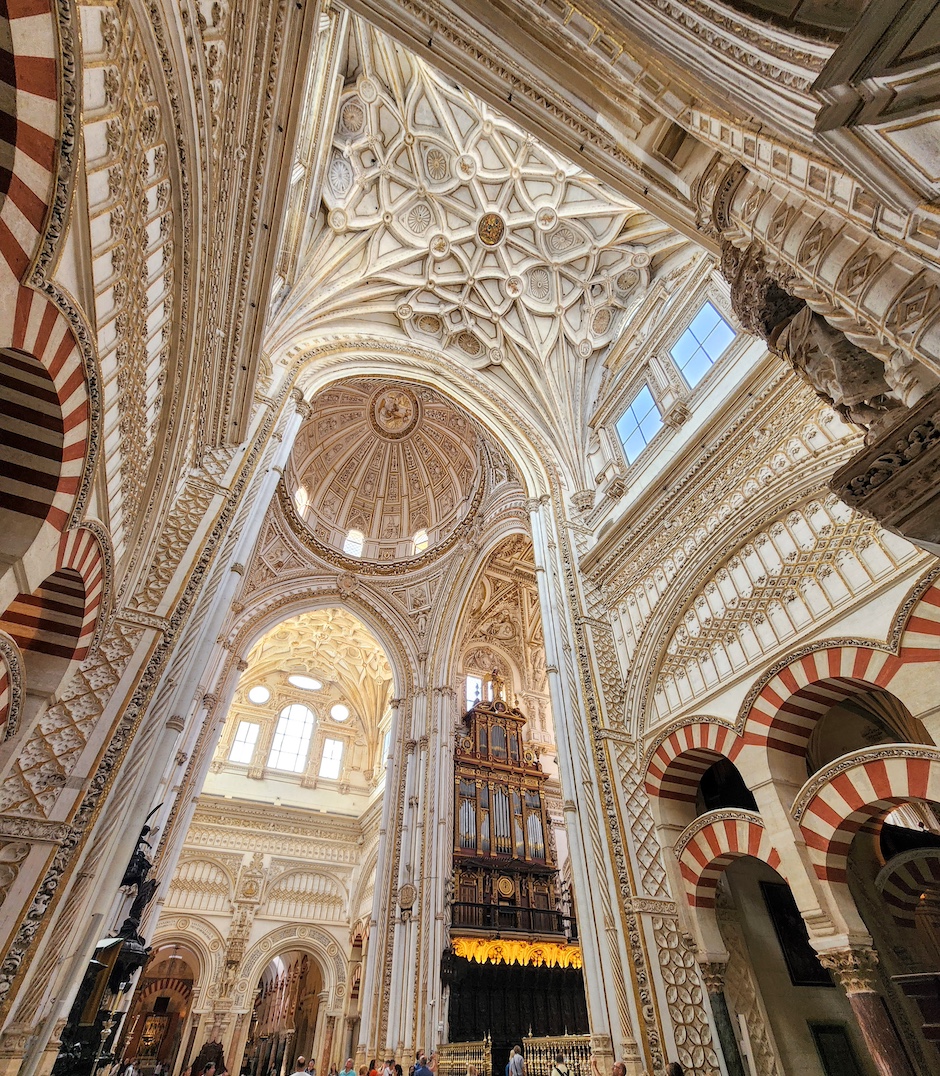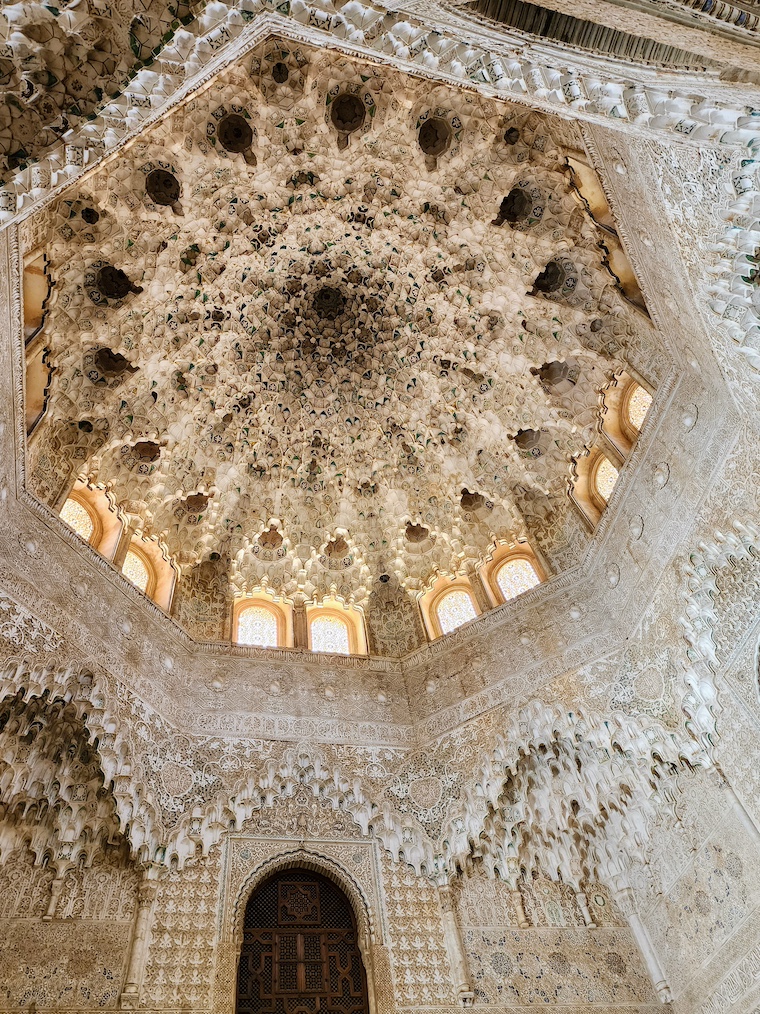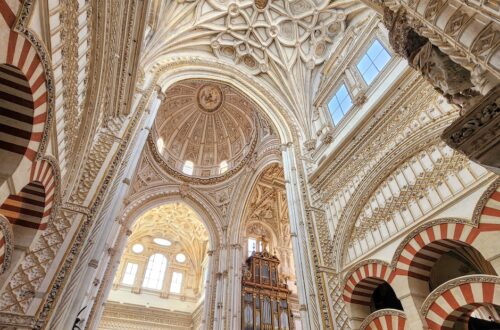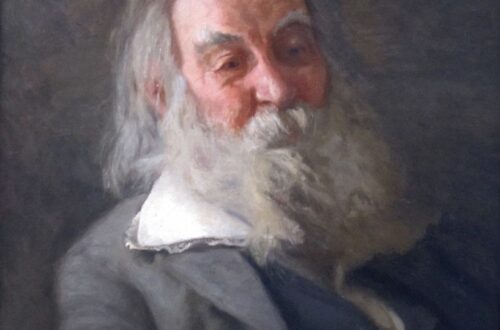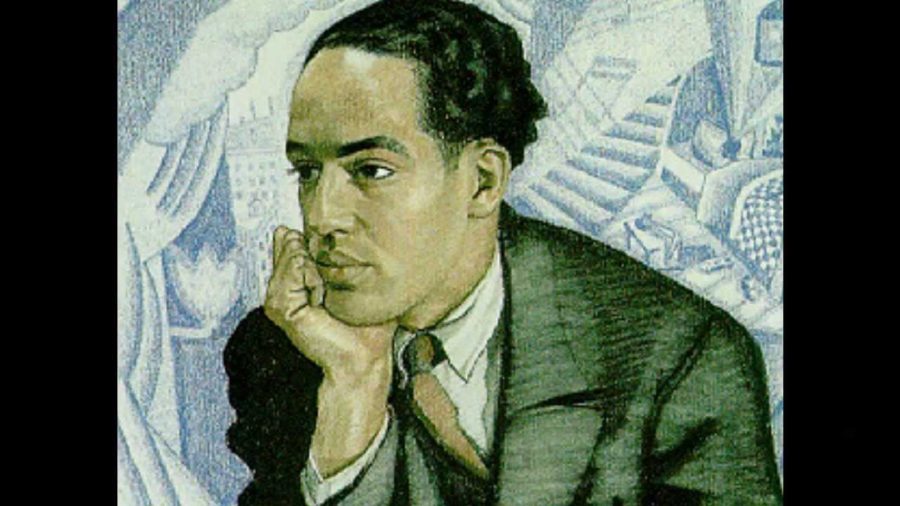Spanish Stories
-
Cordoba’s Mezquita: Silvered Birch and Sunset Palms
I thought I would hate it. Before I crossed the Roman-Andalusian bridge still Spanning the river’s gurgling rush; the guitar’s Flamenco soothing, reviving, recalling Before I passed the Courtyard of Oranges and entered – The shadowed hall Mirrored doubled striated palmed arches in red and gold Rank on rank, columns receding into sunsetting eternity Receding into eternal Arabic calligraphy Curling pirouettes in decorated coves. The Great Mosque of Cordoba, Or The Mezquita as it’s known, Its name an affectionate diminutive … Yet still my finger can trace the Arabic masjid* on the wall. Plonk a church inside a mosque … no that could never work Some kind of garish violation…
-
Alhambra is beautiful white inside
Alhambra is one of the most beautiful places ever built by human hand. Yet if you visit it and observe carefully, you realise that there is something unseen in the pictures of the intricate designs and ceilings that make Al Hambra famous. Alhambra is beautiful white inside Dentro, Alhambra è bella e bianca Alhambra means red, but it’s white inside, Like bones, beautiful white, bones, side by side, An ossified puzzle like a stalactite sky, Despite death, bewildering, still magic, alive. Alhambra significa rossa, ma dentro è bella e bianca Come ossa – belle, bianche, osso accanto a osso, Un mistero ossificato – stalattiti per fare un cielo, Morto, ma…
-
John Donne’s For Whom the Bell Tolls: with translation
John Donne’s passage For Whom the Bell Tolls is most familiar to audiences of our time through Ernest Hemingway’s novel of the same name, set in the Spanish civil war. John Donne’s words are often understood today as a poem (and they are indeed poetic). However they come from a book of devotions, and a longer contemplation on the meaning of the bell. John Donne lived in seventeenth century England. The tolling of the bell was a constant reminder of the call to prayer, and when in 1624 he wrote the passage, John Donne was Dean of St. Pauls (then one of the highest offices of the Anglican church). Il…
